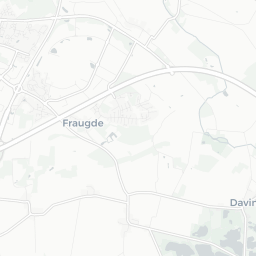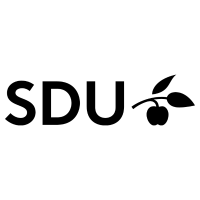PhD Position on Systemic Change in STEM Education: Bridging Stakeholders to Create Shared Visions in a Changing Society
Syddansk Universitet (SDU)
Application deadline: 25 April 2025 at 23:59 hours local Danish time
The STEM Education Research Center at the Department of Mathematics and Computer Science at the University of Southern Denmark (Campus Odense) offers a PhD scholarship on systemic change in STEM education.
The position is connected to the newly established cross boarder STEPS project (STEM Perspectives in Primary and Secondary Education – Career Orientation with Academic, Digital, and Intercultural Competencies) funded by Interreg. The Interreg STEPS project aims to develop and implement pilot projects to strengthen the connection between working life and primary (elementary) and secondary education. The initiative addresses the shortage of skilled workers in digital technology related sectors in Germany and Denmark by providing career orientation for students in primary to upper secondary education, that is integrated into practice-oriented lessons in STEM subjects. Thus, the STEPS seeks to provide young people with a stronger and more informed foundation for making decisions regarding their education and career choices for example, through internship and labour market-oriented teaching programs. The project results will be innovative and effective prototypes that close the gap in career guidance and help to combat the shortage of skilled workers.
Project description
This PhD call explores how shared visions for STEM education can emerge through dialogue and educational collaboration among different stakeholder groups. Focusing on the STEPS project, the research examines the complexities of collaboration between diverse stakeholders, the differences in their visions and goals for STEM education in their region, and their communication for shaping educational innovation. The study also looks at the complexities of transferring educational ideas across borders, such as the Danish-German collaboration in STEM, and investigates how shared visions can balance workforce needs with societal values in a changing job market.
The research project may touch upon the following key concepts:
- Stakeholder Dialogue: How educators, industry partners, and researchers align (or misalign) values and goals to shape systemic educational change.
- Global-Local Complexity: How educational ideas and practices are transferred, adapted, or misunderstood across borders (e.g., Danish German collaboration in STEM education)
- Career Orientation in STEM: How shared visions can balance practical workforce needs with societal and cultural values in a changing job market
- How can dialogue between educators, industry partners and researchers lead to shared visions and plans for systemic STEM education reform?
- Which systemic and cultural drivers and barriers spur or hinder cross-border collaboration in STEM education, and how can they be adressed?
- How may career-oriented STEM education better prepare students for future societal and workforce needs?
- Case Study Research: STEPS serves as the primary case study to explore systemic change, stakeholder collaboration, and cross-border challenges in STEM education.
- Qualitative Methods: Semi-structured Interviews: Engage educators, policymakers, and researchers to identify goals, misalignments, and opportunities for alignment.
- Focus Groups and Dialogical Workshops: Facilitate co-creation of shared visions and practical strategies for systemic change.
- Design-Based and Participatory Action Research (PAR): Collaborate with STEPS partners to co-develop and test frameworks and tools for enhancing communication and systemic alignment.
- Framework for Stakeholder Dialogue: A practical, research-based framework to facilitate communication, alignment, and shared visions for STEM education among educators, policymakers, and researchers.
- Career Orientation Tools: Strategies and tools to integrate career-oriented STEM learning into primary and secondary education, addressing cultural and systemic barriers.
- Case Study Insights and Policy Recommendations: Evidence-based insights and actionable recommendations from STEPS, offering scalable solutions for systemic STEM education reforms and cross-border collaboration.
- Application letter with motivation of interest for the project
- Curriculum documenting educational and professional experience when applicable
- Documentations of awarded master’s degree (or equivalent)
- Contact details (phone numbers and e-mail) for at least 2 referees who can be contacted for reference
- List of publications when applicable
- A 3-page project description:
- A clearly defined, individual research plan that fits into and complements the STEPS project
- Plan for making the project relevant to the field of practice and for knowledge dissemination
- Reflections on ethical aspects related to the project
Core Research Questions for inspiration and further development
- Supports STEPS’ aim to promote career orientation and intercultural competencies in STEM from primary to secondary education.
- Addresses systemic and cultural challenges in Danish-German collaboration.
- Provides actionable insights and tools to enhance stakeholder communication and shared vision-building.
The application for the PhD position must include:
- Evaluation Criteria
- Research quality and feasibility of the project
- Relevance of the project to STEPS' overall purpose
- Project's plan for practical relevance and knowledge dissemination
- Applicant's qualifications
Qualifications
Applicants are expected to have a relevant master's degree in social sciences or equivalent qualifications that provide sufficient knowledge to conduct educational research in primary and secondary education.
Applicants are expected to be fluent English and Danish, to be able to gather data observing classes and establish personal contact with teachers, including international staff, and students.
Applicants are expected to have basic proficiency in German sufficient for everyday communication.
Employment Terms
- Enrolment in the doctoral school at the Faculty of Science, SDU
- Participation in Research training programme in Science and Mathematics Education and Communication (SMEC)
- Supervisors are Associate Professor Gitte Miller Balslev and Associate Professor Chunfang Zhou, FNUG, SDU
- 3-year full-time employment
The PhD student is expected to teach FNUG courses, e.g., in STEM didactics (NAT805/NAT808) and/or Project Management in Science (NAT118).
Additional Information
Potential applicants are encouraged to contact Associate Professor Gitte Miller Balslev (gm@sdu.dk) or Associate Professor Chunfang Zhou (chzh@sdu.dk) for further information and discussion of project ideas.
Application deadline: 25 April 2025 at 23:59 hours local Danish time
Expected start date: June 1, 2025, or soon thereafter
Application, salary etc.
Appointment as a PhD Research Fellow is for three years. Employment stops automatically at the end of the period. The holder of the scholarship is not allowed to have other paid employment during the three-year period.
The successful applicant will be employed in accordance with the agreement on salaried PhD scholars between the Ministry of Finance and AC (the Danish Confederation of Professional Associations). Please check links for more information on salary (only available in Danish) and taxation.
The successful candidate will be enrolled at this university in accordance with faculty regulations and the Danish Ministerial Order on the PhD Programme at the Universities (PhD order).
Further information about the PhD-study can be found at the homepage of the University.
The University wishes our staff to reflect the diversity of society and thus welcomes applications from all qualified candidates regardless of personal background.
Application must be in English and made in the form of a Declaration of Interest including the following:
- A letter stating your specific interest, motivation, and qualifications for the project in question (max. two pages)
- Detailed CV, including personal contact information
- Copies of diplomas, Bachelor as well as Master’s degree, including transcript of notes/grades
- The names and complete contact details (phone numbers and e-mail) of at least two referees details for at least 2 referees who can vouch for your skills
Shortlisting may be used in the assessment process. Incomplete applications and applications received after the deadline will neither be considered nor evaluated. This also applies to reference letters.
Applications will be assessed by an expert assessor/committee. Applicants will be informed of their assessment by the university.
Applications should be sent electronically via the link "Apply now". The faculty expects applicants to read the information "How to apply: FAQ" before applying. Please note that the application documents should be in pdf-format and attached as three documents: motivation letter, CV and the remaining documents.
We recommend that as an international applicant you take the time to visit Work in Denmark where you will find information and facts about moving to, working and living in Denmark, as well as the International Staff Office at SDU.
Interested applicants should submit their application through the official application system. It is recommended to allow ample time to prepare and submit the application.
Placering: Odense, Denmark
Opslaget er indhentet automatisk fra virksomhedens jobsider og vises derfor kun som uddrag. Log ind for at se det fulde opslag eller gå videre til opslaget her:

















